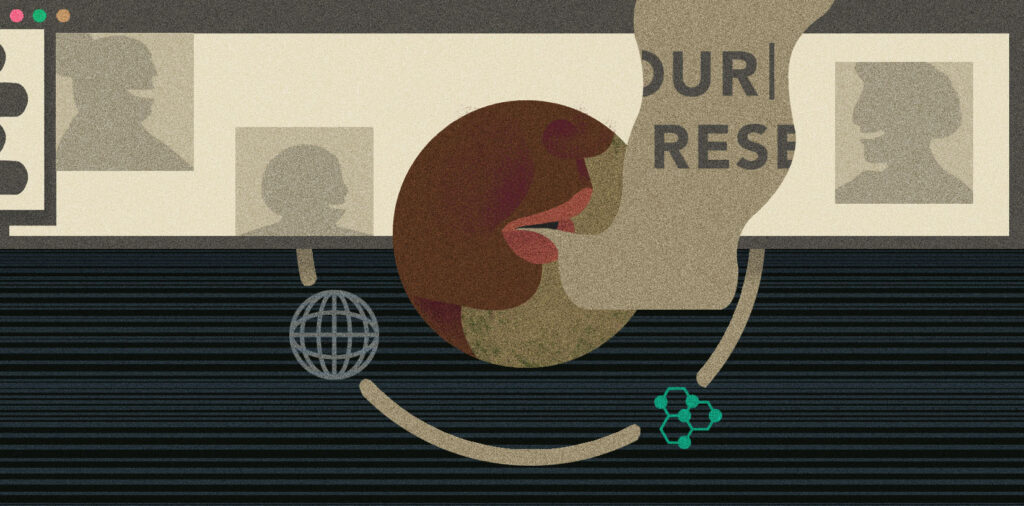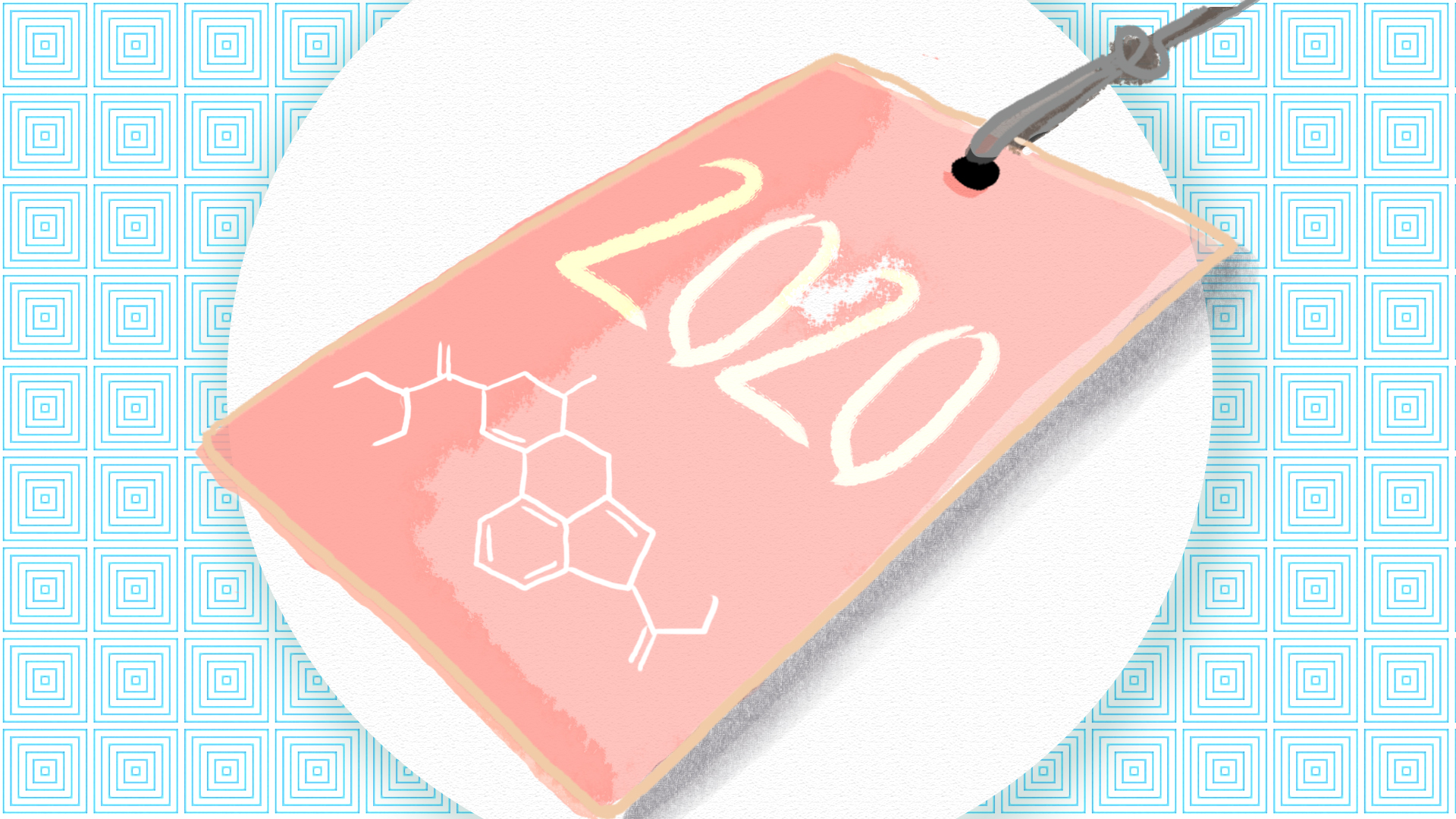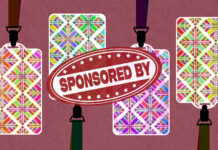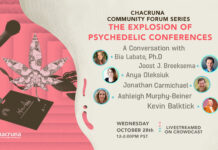- Rethinking Power, Plants, and the Future of Psychedelic Culture - May 9, 2025
- Where Is the Psychedelic Movement Headed Next? - October 15, 2024
- The FDA’s Rejection on MDMA-Assisted Therapy: What is Next for the Psychedelic Movement? - August 16, 2024
As we continue to face the challenges of the global pandemic, more and more conferences are going online. This has created a new challenge for both organizers and speakers: the need to create safe spaces for participants and speakers of color. Recently, we had a negative experience in this regard, which we would like to share here in order to help our community build safer spaces.
Online psychedelic conferences might provide greater inclusion and access on multiple levels: more people are able to join from different parts of the world; tickets can be cheaper, as organizers do not need to fly speakers, host them, and pay for venues, coffee breaks and so forth; and, depending on the platform adopted, there is no limit of space, so organizers can provide more scholarships and discounted tickets.
However, the lack of hierarchy and distance between speaker and public, and between members of the audience themselves, can expose speakers to bullying and microaggressions.
Online psychedelic conferences can also offer an amazing horizontal and democratic line of communication. Whereas presentations in person generally involve a strong hierarchy between speakers and participants, at online conferences you can often comment in the chat box directly in response to what the speaker is saying. We have seen how this can create an incredibly intimate feeling of direct and personal exchange of ideas, accessibility, and community. Conversations can be dynamic, engaging, and multidirectional. However, the lack of hierarchy and distance between speaker and public, and between members of the audience themselves, can expose speakers to bullying and microaggressions. In other words, we are brought back to a typical dynamic that occurs in social media: people hiding behind their screen somehow feel more comfortable attacking others. The cyber trolls, haters, and bullies do things that they would not have the courage or opportunity to do in person.
For a White man with no training in this area to publicly tell a Black woman, who is a licensed psychologist, PhD, and Canada Research Chair in Metal Health Disparities, that she is not doing her job well, is a reflection of deep racial dynamics and legacies.
This is what happened in a panel we participated in, where Dr. Labate was a moderator and Dr. Williams was a speaker. While Dr. Williams was giving her presentation, a speaker made a hostile comment in the chat box, which we found racist. He asserted that her presentation of the facts surrounding racial disparities was “cherry-picked.” Certainly, having different opinions and expressing different views is a fundamental piece of a healthy conversation and, ultimately, what makes conferences meaningful, but discrediting an expert’s research onstage can be an act of verbal aggression. One of the primary manifestations of Black-White racism is to assert Black people are less intelligent than White people. For a White man with no training in this area to publicly tell a Black woman, who is a licensed psychologist, PhD, and Canada Research Chair in Metal Health Disparities, that she is not doing her job well, is a reflection of deep racial dynamics and legacies. We can only wonder: Would he tell a White researcher that he was doing it all wrong? Does he talk down to other women in his life? Does he talk this way to his Black friends? Does he have any Black friends at all?
Next, he evoked the name of President Trump, claiming that Trump has done more for African Americans than any other president. Trump has made indisputably racist and sexist statements and has sown division worldwide. This is the man who said African countries were “shitholes”, Mexicans are rapists (though some are good people), and who boasts about his sexual assaults on women (“grab them by the pussy”). The curious thing is that Monnica did not say a word about Trump in her talk, or politics at all, for that matter. But this White Canadian man asserted himself while she was speaking, claiming that he knows what president is best for the Black American community, knowing full well that most Black Americans despise Trump. This was incongruent and inappropriate.

Finally, he said he was dismayed by her “drive-by” analysis: a double meaning for his implication that she inadequately discussed the complex material she presented, while simultaneously comparing her to LA gang members who shoot rivals from their cars while driving. Think about this: He compared Dr. Williams’ talk to the actions of violent gun-wielding thugs who are stereotypically people of color. Instead of quoting alternative material, or politely asking questions to learn more, he chose to be disrespectful. He refused to recognize her as a legitimate scholar, but rather attempted to “put her in her place” through his racially-charged and demeaning rhetoric.
Instead of supporting her, the organizer replied in public that “I know the individual; I know his heart, and I believe his comment was not racist.”
During the presentation, Dr. Labate texted the organizers, and told them that she and Dr. Williams were gravely concerned about those comments, and they should address it. They said they would speak to him, but we then heard nothing. They remained silent in public. So, as moderator, Dr. Labate mentioned in the end that she was not comfortable with the words spoken, and that they constituted racism. Instead of supporting her, the organizer replied in public that “I know the individual; I know his heart, and I believe his comment was not racist.” While Dr. Labate stepped forward as a true ally, the organizers missed an opportunity to do the same, and closed ranks around the White man who made racist statements to this invited female speaker of color during her talk. This was a lost opportunity for White allyship. This is also disrespectful to Dr. Labate, who, as an invited moderator, should have some authority in guiding the conversations on behalf of the conference organizers. Perhaps they spoke to the person in private at a later time; however, please note that if an act of aggression is done publicly, an apology needs to be public as well. The organizers seemed more concerned about defending the perpetrator than stopping microaggressions and making their speakers of color feel welcomed and safe.
However, it would be more appropriate to apologize for their own lack of courage to do the right thing in the moment, which would have been to denounce his inappropriate remarks and support their invited speaker.
The next day, the organizers seemed to realize their mistake and reached out to us, apologizing for the guest’s behavior, and saying they should have removed him. However, it would be more appropriate to apologize for their own lack of courage to do the right thing in the moment, which would have been to denounce his inappropriate remarks and support their invited speaker.
Where does this bring us? When online conference organizers produce events, they need to have clear sets of policies:
- What do to with bullies in general
- How to create safe spaces for people of color
For that, organizers need to both hire social media experts and get training on safety for people of color. It is important that organizers anticipate that some people may behave badly and have a plan in place for how to respond if this happens. Speakers and audience members should also be told in advance what will happen if people engage in inappropriate speech toward anyone.
This is a learning process for all of us. We’ve had our own challenges, such as when one of our invited speakers used language (the “n-word”) that was hurtful to other speakers and participants of color. We were unprepared to deal with this effectively in the moment, and had to take time later to begin repair. This work is not easy but is important. Taking deliberate action in the service of our anti-racist values is necessary to create spaces where everyone feels welcome and safe.
You can also read more about how to deal with microaggressions here.
Thurber, A. & DiAngelo, R. (2018) Microaggressions: Intervening in three acts. Journal of Ethnic & Cultural Diversity in Social Work, 27(1), 17-27. DOI: 10.1080/15313204.2017.1417941.
Art by Mariom Luna.
Further resources
Take a minute to browse our stock:
Did you enjoy reading this article?
Please support Chacruna's work by donating to us. We are an independent organization and we offer free education and advocacy for psychedelic plant medicines. We are a team of dedicated volunteers!
Can you help Chacruna advance cultural understanding around these substances?















